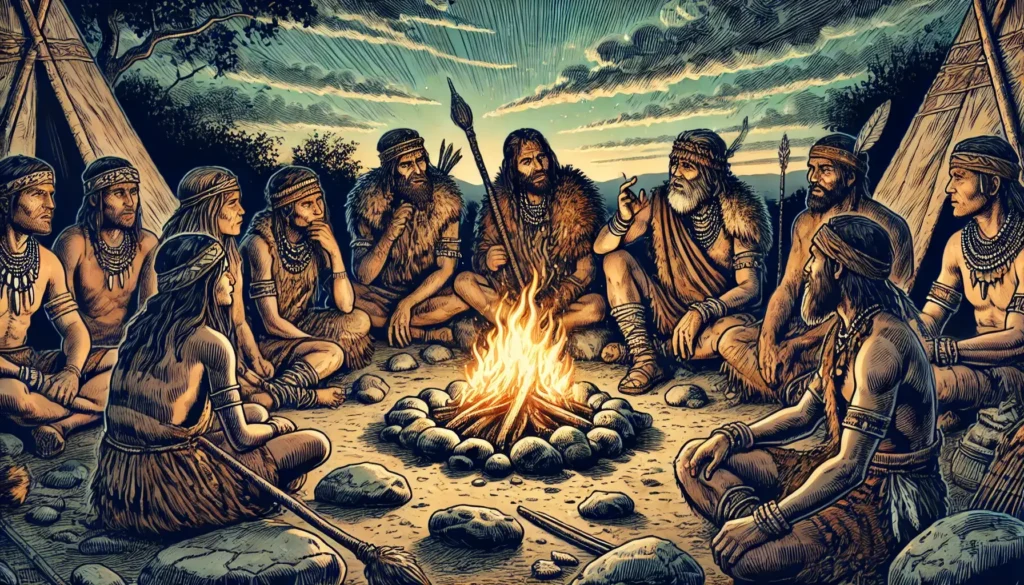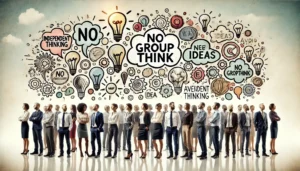Understanding the evolutionary roots of human behavior offers valuable insights into why we think, feel, and act the way we do. From a drive for group belonging to a desire for control, our behaviors are deeply influenced by ancient survival mechanisms. Exploring these evolutionary roots of human behavior can shed light on modern societal challenges and help us foster a better future through self-awareness and empathy.
The Evolutionary Roots of Human Identity and Belonging
Early Human Survival and the Evolutionary Need for Belonging
The evolutionary roots of human behavior reveal that early human communities depended heavily on social bonds for survival. Belonging to a tribe meant safety and shared resources, making group identity an essential survival tool. This deep-seated need to belong helped early humans cooperate and defend one another, increasing their chances of survival. These evolutionary roots of human behavior still impact us today, as we seek identity through various social groups and cultural affiliations.

Control as an Evolutionary Mechanism for Survival
Another significant aspect of the evolutionary roots of human behavior is our drive for control, originally centered around managing unpredictable environments. Early humans needed to control aspects of their environment to secure food, shelter, and safety. This desire for control helped create a sense of predictability, allowing humans to thrive in uncertain conditions. Today, the evolutionary roots of control extend into social dynamics, where people often attempt to control not only their surroundings but also the behaviors and opinions of others.
Modern Manifestations of Tribalism and Over-Identification
Tribalism and the Evolutionary Need for Belonging in Modern Society
Today, the evolutionary roots of human behavior manifest as tribalism within social and political groups. Although identification with groups provides a sense of community, it can also foster an “us versus them” mentality. This tribalism, which stems from our evolutionary roots, can create divides between people, leading to conflict and intolerance. Modern examples of this can be seen in nationalism, gang rivalries, and even fan loyalty in sports, where strong identification with a group leads to exclusion of others.
Group Identity and Its Influence on Modern Behavior
The evolutionary roots of human behavior also impact our loyalty to groups beyond survival purposes. Today, people often identify strongly with their jobs, sports teams, or ideologies, which fosters loyalty but can also lead to rivalry and conflict. Over-identification with these groups can cause people to prioritize group loyalty over rational decision-making, underscoring how the evolutionary roots of human behavior continue to shape societal dynamics.
The Desire for Control and Its Impact on Modern Life
From Environmental Control to Social Control
The evolutionary roots of human behavior related to control have shifted over time. Where early humans focused on controlling their physical environment, modern society sees control extending into social contexts. This drive to manage opinions, relationships, and outcomes can often lead to stress and strained relationships. The evolutionary need for control, when left unchecked, can lead to micromanagement in the workplace or overbearing parenting styles, impacting both personal and professional relationships.
Control Dynamics in Relationships and the Workplace
The influence of evolutionary roots of human behavior on control is evident in relationships and work dynamics. In relationships, the desire for control can limit trust and intimacy, leading to power struggles. In the workplace, excessive control, such as micromanagement, stifles creativity and hampers collaboration. Recognizing these control tendencies helps individuals address their impact on relationships and work, enabling healthier interactions aligned with modern social needs.

Self-Awareness as a Path to Personal Growth
Using Self-Awareness to Understand Our Evolutionary Drives
Becoming self-aware is crucial for recognizing the evolutionary roots of human behavior that influence our actions. By understanding these primal instincts, we can make conscious choices rather than reacting impulsively. Self-awareness, coupled with emotional intelligence, enables individuals to manage these deep-seated drives, leading to more positive relationships and overall well-being.
The Role of Education in Reframing Evolutionary Behaviors
Education plays an essential role in helping individuals move beyond the evolutionary roots of human behavior that no longer serve us. By promoting critical thinking and self-reflection, education empowers individuals to challenge long-standing biases. This process can reshape ingrained behaviors and foster a more inclusive, adaptable society that transcends survival-based instincts.
The Role of Empathy in Modern Society
Overcoming Tribal Tendencies Through Empathy
Empathy is a powerful tool for countering the tribal tendencies rooted in the evolutionary aspects of human behavior. By cultivating empathy, people can understand others’ perspectives, reducing division and fostering social cohesion. Empathy allows us to see beyond group identities, creating a bridge to understanding and reducing conflict stemming from tribal instincts.
Using Understanding to Counter Control Impulses
When people take the time to understand one another, it reduces the need to control others’ behavior or opinions. In professional and personal relationships, empathy and understanding help create balanced interactions, enabling both parties to feel valued. Shifting from control to understanding allows for collaboration, trust, and improved connection, aligning more closely with contemporary social needs.
Envisioning a Future Beyond Primitive Drives
Fostering a Culture of Self-Awareness and Emotional Intelligence
Embracing self-awareness and emotional intelligence as cultural values can help society transcend the evolutionary roots of human behavior. When individuals prioritize personal growth and understanding, they create environments that support thoughtful responses over impulsive reactions. This cultural shift fosters greater harmony and personal responsibility, contributing to a more cohesive and understanding society.
Building a Future Beyond Tribalism and Control
The evolutionary roots of human behavior provided essential survival mechanisms, but moving beyond these instincts is crucial for today’s interconnected world. Promoting inclusivity, global cooperation, and mutual respect encourages society to evolve in ways that prioritize empathy and collaboration. By addressing our evolutionary drives, we can foster a future where unity, diversity, and human potential flourish together.
Conclusion: Evolving Beyond Our Evolutionary Roots
Our evolutionary roots have shaped fundamental aspects of human behavior, from the need for belonging to the drive for control. While these behaviors were once necessary for survival, they can now hold us back in modern society. Through self-awareness, empathy, and education, we can consciously evolve beyond these instinctual behaviors, creating a more harmonious and inclusive future.
Additional Sources
- Smith, John. The Evolution of Human Behavior. Academic Press, 2021.
- Brown, Claire. “Breaking the Cycle: Overcoming Evolutionary Tendencies in Modern Society.” Cultural Studies Review, vol. 12, no. 1, 2023.
- Gaskill, Traci. “The Neuroscience of Tribalism.Psychology Today, July 2023.


